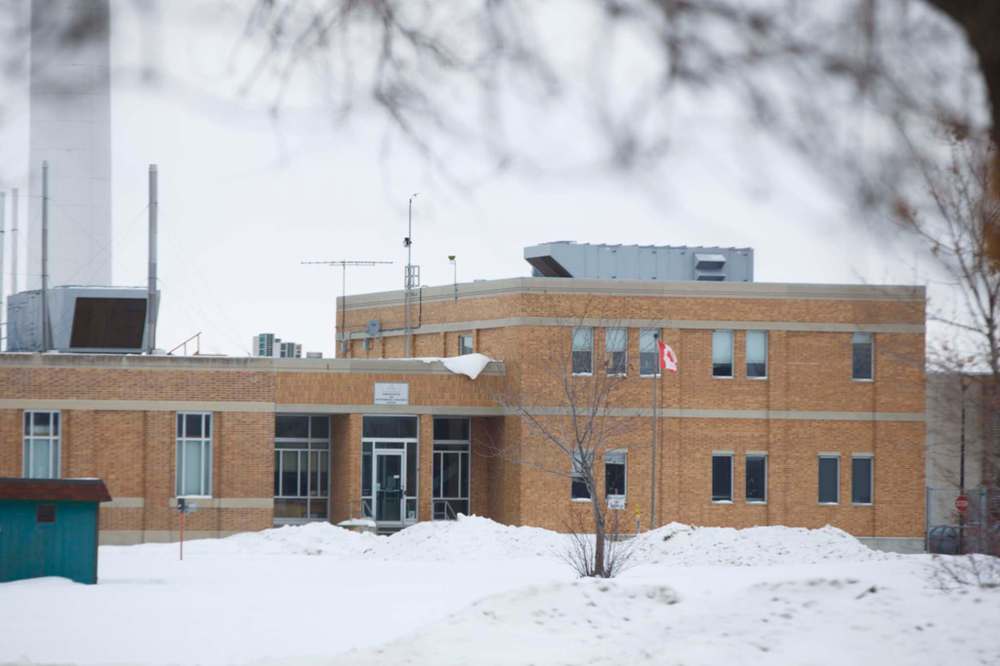Winnipeg faces finite sewage treatment capacity without upgrades
Advertisement
Read this article for free:
or
Already have an account? Log in here »
To continue reading, please subscribe:
Monthly Digital Subscription
$1 per week for 24 weeks*
- Enjoy unlimited reading on winnipegfreepress.com
- Read the E-Edition, our digital replica newspaper
- Access News Break, our award-winning app
- Play interactive puzzles
*Billed as $4.00 plus GST every four weeks. After 24 weeks, price increases to the regular rate of $19.95 plus GST every four weeks. Offer available to new and qualified returning subscribers only. Cancel any time.
Monthly Digital Subscription
$4.99/week*
- Enjoy unlimited reading on winnipegfreepress.com
- Read the E-Edition, our digital replica newspaper
- Access News Break, our award-winning app
- Play interactive puzzles
*Billed as $19.95 plus GST every four weeks. Cancel any time.
To continue reading, please subscribe:
Add Free Press access to your Brandon Sun subscription for only an additional
$1 for the first 4 weeks*
*Your next subscription payment will increase by $1.00 and you will be charged $16.99 plus GST for four weeks. After four weeks, your payment will increase to $23.99 plus GST every four weeks.
Read unlimited articles for free today:
or
Already have an account? Log in here »
Hey there, time traveller!
This article was published 09/11/2020 (1893 days ago), so information in it may no longer be current.
Future developments in Winnipeg could be limited by sewage treatment capacity within just a few years.
A planned $1.8-billion upgrade of the north end sewage treatment plant includes work to increase its capacity to process all of the city’s sewage sludge into what’s known as biosolids, a new civic report details.
“The existing biosolids facility has a finite capacity and could halt or restrict development (residential, commercial and industrial) within the City of Winnipeg and the Winnipeg metro region in the next five to nine years,” writes Geoffrey Patton, Winnipeg water and waste manager of engineering services.

The plant can handle the demands of about 90,000 additional people until it is upgraded, Patton states. Increased capacity is currently expected to arrive in 2028, as long as the north end upgrade secures senior government funding and stays on schedule.
Coun. Brian Mayes, chairman of council’s water and waste committee, said it has now become even more critical to keep that project’s timeline on track. Mayes noted large development proposals could also force council to make some difficult decisions, if they would use up the existing capacity sooner.
“If we’re going to have to start balancing (demands on the treatment), as the report says… Then if we’ve got a big plant that wants to come in, maybe we can’t say yes because that would soak up too much of the sewer capacity,” Mayes (St. Vital) said Monday.
One large industrial development alone can require the sewage capacity equivalent of about 15,000 people, Mayes said.
Exceeding the treatment capacity for an extended period would also threaten to let sewage sludge accumulate and spill into the local river system, the report notes.
The city’s public service recommends council vote on any sewage service-sharing agreements with rural municipalities in the future (which was previously handled by the city’s chief administrative officer), as well as any large industrial developments that would use up more than five per cent of the remaining biosolids capacity.
On Monday, the water and waste committee voted to postpone action on the file for one month to seek more information.
joyanne.pursaga@freepress.mb.ca
Twitter: @joyanne_pursaga

Joyanne is city hall reporter for the Winnipeg Free Press. A reporter since 2004, she began covering politics exclusively in 2012, writing on city hall and the Manitoba Legislature for the Winnipeg Sun before joining the Free Press in early 2020. Read more about Joyanne.
Every piece of reporting Joyanne produces is reviewed by an editing team before it is posted online or published in print — part of the Free Press‘s tradition, since 1872, of producing reliable independent journalism. Read more about Free Press’s history and mandate, and learn how our newsroom operates.
Our newsroom depends on a growing audience of readers to power our journalism. If you are not a paid reader, please consider becoming a subscriber.
Our newsroom depends on its audience of readers to power our journalism. Thank you for your support.

